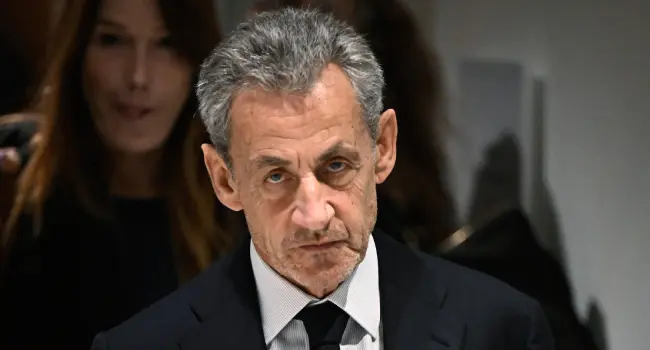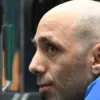Former French President Nicolas Sarkozy will be incarcerated on Tuesday over a criminal conspiracy involving illicit Libyan funding for his 2007 presidential campaign, making him the first ex-leader of an EU country to serve jail time.
Sarkozy, who led France from 2007 to 2012, was convicted on September 25 of conspiring with aides to seek campaign funding from the late Libyan dictator Muammar Gaddafi. He has appealed the verdict, calling it a “deep injustice.”
Despite the ongoing appeal, he is set to be held at La Santé Prison in Paris, in a solitary confinement cell of just 9 square metres (95 square feet) to avoid interaction with other inmates and potential leaks via smuggled mobile phones.
“If they absolutely want me to sleep in prison, I will sleep in prison — but with my head held high,” Sarkozy said following his conviction.
A historic fall from power
Sarkozy will be the first French president to go behind bars since Philippe Pétain, head of the Nazi-collaborationist Vichy regime during World War II.
Judge Nathalie Gavarino, who handed down the sentence, described the crimes as of “exceptional gravity”, justifying incarceration even during appeal.
However, Sarkozy’s legal team is expected to immediately seek his conditional release, with the court having up to two months to rule. Options include judicial supervision or house arrest with an ankle monitor.
Until then, the former president is likely to spend most of his time in isolation, allowed just one daily solo walk in a small yard.
Mounting legal troubles
Sarkozy, 69, has faced a string of legal battles since leaving office in 2012.
He was previously convicted in two other trials, including a corruption case in which he attempted to bribe a judge. He served part of that sentence under electronic monitoring, which ended in May.
In the “Libya case,” prosecutors alleged that Sarkozy’s team, acting with his consent, struck a secret deal with Gaddafi in 2005 to bankroll his 2007 election campaign. In return, Sarkozy allegedly promised to help the Libyan leader rehabilitate his global image, after the country was blamed for deadly bombings over Lockerbie (1988) and Niger (1989).
The court, however, acquitted Sarkozy of more serious charges including embezzlement of Libyan funds, passive corruption, and illegal campaign financing, focusing instead on his role in a criminal conspiracy.
Divided public opinion
Sarkozy was stripped of France’s Legion of Honour following his corruption conviction. A recent Elabe poll found 60% of French adults support his latest sentence as “fair,” though he retains strong backing from segments of the political right.
His son, Louis Sarkozy, who writes for a far-right outlet and is running for mayor in southern France, urged supporters to rally outside the family’s residence on Tuesday.
Meanwhile, Judge Gavarino has received death threats over her ruling, prompting President Emmanuel Macron to condemn such attacks as “unacceptable.”
La Santé has housed several notorious figures over the years, including Carlos the Jackal, and more recently, Jean-Luc Brunel, a close associate of Jeffrey Epstein, who died in custody in 2022 while facing rape charges involving minors.
Despite Sarkozy’s downfall, his case continues to spotlight issues of political corruption, elite impunity, and judicial independence in France—and Europe at large.
AFP


